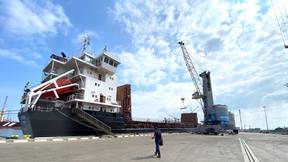Interview: Aaron Smith Zeroes in on the Offshore Sector

As the Executive Director for the Offshore Supply Vessel Dynamic Positioning Authority (OSVDPA), Aaron Smith is charged with managing the day-to-day operation of the Authority. Along with the OSVDPA Board of Directors and Technical Advisory Council (TAC), Aaron has helped to craft the Authority’s dynamic positioning operator (DPO) certification program. This includes ensuring that the program is ultimately accepted by the offshore energy industry, and its many international and domestic counterparts.
Talking DP with Aaron C. Smith, Executive Director OSVDPA

When the Offshore Supply Vessel Dynamic Positioning Authority (OSVDPA) held its first board meeting in March, it began charting the course toward a new dynamic positioning operator (DPO) certificate especially designed for the offshore service vessel industry. As the Executive Director for the newly created Offshore Supply Vessel Dynamic Positioning Authority (OSVDPA), Aaron Smith is charged with managing the day-to-day operation of the Authority. Along with the OSVDPA Board of Directors and Technical Advisory Council (TAC)…
WRDA to the Wise

May 15, 2013 was a very good day for the nation’s barge and towing operators, as well as shippers of grain, coal, chemicals, petroleum products, aggregate materials, and agri-input products. It was also a good day for our nation’s economy and for its consumers. The Senate passed, by a vote of 83-14, a long-overdue Water Resources Development Act (WRDA), last reauthorized in 2007. Six years may not seem like a long time to await action on Capitol Hill. But since 57% of the locks and dams on the nation’s inland waterways system have exceeded their economic design life expectancy of 50 years…
The Mighty Teeny Mississippi

Just as the nation averted the fiscal cliff, it looks as if the inland waterways industries narrowly escaped its own fiscal waterfall. At press time, the U.S. Army Corps of Engineers indicates that, despite record low water levels, the Mississippi River will be able to sustain navigation through the spring for towboats and barges. This is welcome news for shippers, operators and the U.S. economy that relies upon a robust export market facilitated by the waterways transportation system.








